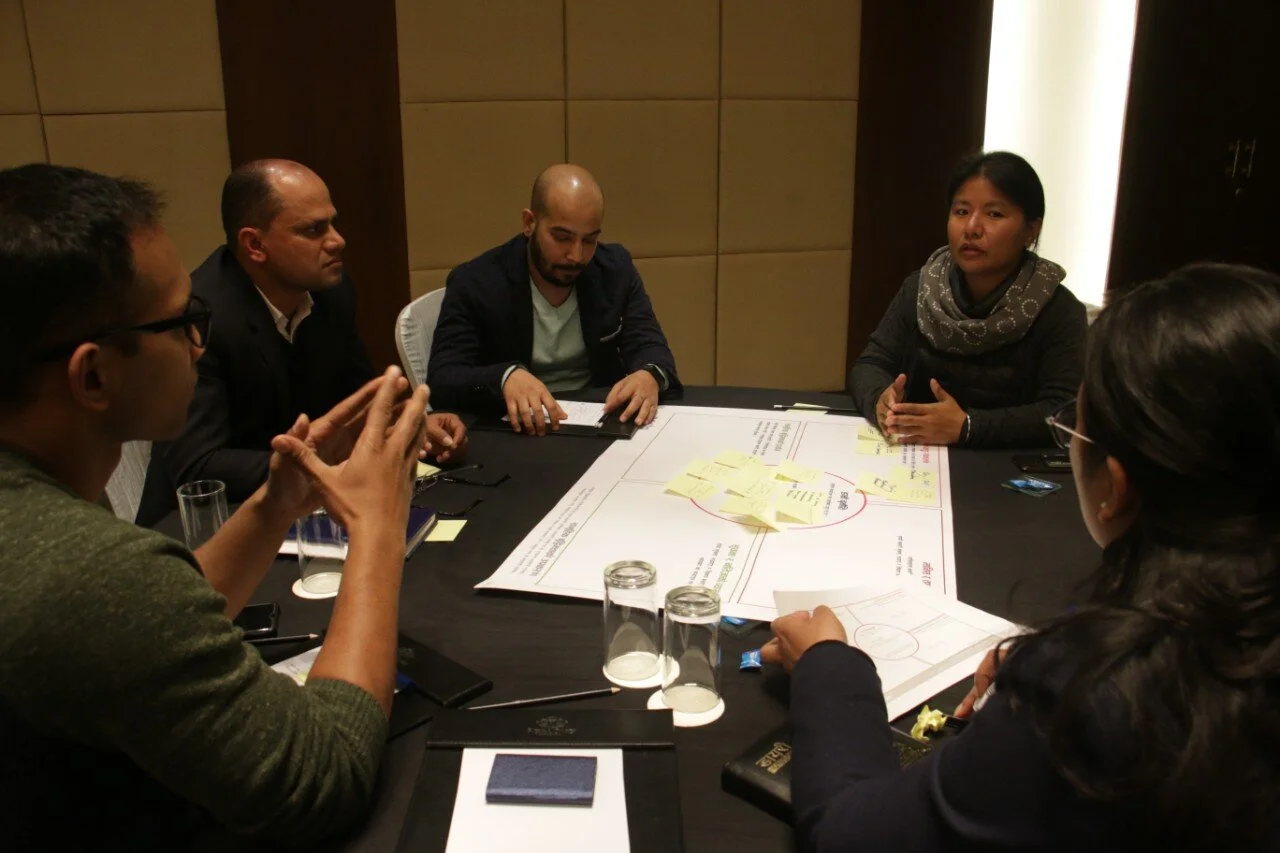K-HUB: The Kathmandu Business Hub
Jul 2020
RELATED LINKS
K-Hub: Incubating Public and Private Partnerships to Address Youth Unemployment
As Published By UNDP Nepal
Learn more about Beyond Group
The Kathmandu Business Hub
Amplifying Growth Through Nurturing Start-Up Cultures & Innovation
Kathmandu Metropolitan City (KMC), a city composed of a population of 52.9% youth between the ages of 16-40, and holds great potential for entrepreneurial and innovation activities. Opportunities emanate from Kathmandu’s recovering economy with growth rates steadily increasing in sectors such as agriculture, services, trade and information and communications technology (ICT) where innovation and technology is a huge enabler.
Being the capital and at the heart of Nepal, and with its valley growing at 4% per year, Kathmandu is one of the fastest growing metropolitan areas in South Asia, with high potential to rejuvenate the local socio-economic situation by providing the space for citizens in general, and youth in particular, to innovate and transform existing sectors making them more sustainable and impactful.
Despite the opportunity and the potential found in Kathmandu, many challenges still need to be tackled in order to better engage and incentive youth to venture into entrepreneurship and innovation instead of immigrating to find work outside the country. They need to be provided with an enabling environment for them to kickstart new entrepreneurial businesses that could in themselves tackle many existing community challenges while creating growth in the economy as well as new job opportunities.
Entrepreneurial initiatives driven by local community members, particularly youth, that tackle social and economic challenges within communities can drive human development at grassroots levels while bringing together new stakeholders while forming promising connections, synergies that in turn can lead systemic change and impact where needed.
The private sector in Kathmandu has been leading the efforts towards a more accessible and supported business environment. For the last 5 years, it has been supporting entrepreneurs to reach their potential by providing them with support services and technical skills that have helped the ecosystem and its entrepreneurs grow and develop. As the local government of Kathmandu, KMC has also realized the impact of this growth and its potential driving economic growth and job creation and has recognized that a collaborative effort between the public and the private sector can take the ecosystem to a level where growth can be amplified through the nurturing of start-up cultures and promoting innovative enterprises in the country.
Accordingly, the Kathmandu Metropolitan City and UNDP Accelerator Lab have partnered with Beyond Group to design the first Kathmandu Business Hub (K-Hub) supported by the government of Nepal and aiming at engaging youth with the support of existing local actors in innovating for social impact and supporting them to start and run their own businesses.
The project, launched in early 2020 and is scheduled to be completed by October 2020, and comprises of the following objectives:
Mapping and defining the different challenges, issues and drivers of challenges in Kathmandu.
Designing the strategy of the business hub , Its mission and vision, the different types of programmes and activities needed to achieve the overall objective, its governance and operational model.
Designing the pilot plan of the hub including the implementation of different proposed programmes and activities, and identifying potential implementing partners to implement the different programmes.
Recommending an operational, governance and sustainability model for the hub taking into consideration both government and private sector.
With the project activities underway, our mapping and data collection activities have identified the following key systemic entrepreneurial challenges:
Growing Need for Social Innovation and Technology: with the increasingly pressing issues that Kathmandu is facing, there is a need to enable and support Youth-led innovation and technology capacities.
Growing Need for Innovation Competencies and Skills: Brain drain is a systematic challenge across the country. Those who do not migrate are stuck in low-income low skills jobs. There is a need to capacitate youth who stay in Kathmandu and exploit the talent of those who migrate and return.
Disconnect Between Industries and the Entrepreneurship Ecosystem: Industry support to the ecosystem is ad-hoc and non-programmatic.
Duplication of Efforts: existing services cater to some needs of early-stage entrepreneurs with many other systems needs not yet met.
Competition Among Stakeholders: with the growing need for social innovation and technology support services and with the increasing attention from donors to fund such services, active stakeholders have gone into negative competition cycles.
Growing Need for Better Policies and Regulation: with a growing entrepreneurship sector much of the current policies and regulations are not incentivizing for small businesses.
Lack of Access to Information: The lack of knowledge, accessibility, and availability of information creates a barrier to entry into the entrepreneurship sector.
The strategy for K-Hub is designed to tackle these challenges through a collaborative multi-stakeholder approach bringing efforts together to build on existing knowledge and experiences of different stakeholders. The pilot plan is currently being developed and will guide the operationalisation of K-Hub.
By enabling an environment of collaboration between existing local actors, maximizing the potential of the city’s growing sectors through catalyzing technology and innovation, and the utilizing governmental resources and assets to support the efforts of the private sector, the impact which K-Hub is set to create has the potential to rapidly and sustainably grow Kathmandu’s entrepreneurial scene, advance its growth sectors, reduce unemployment and most importantly enhance the quality of life of its citizens.


